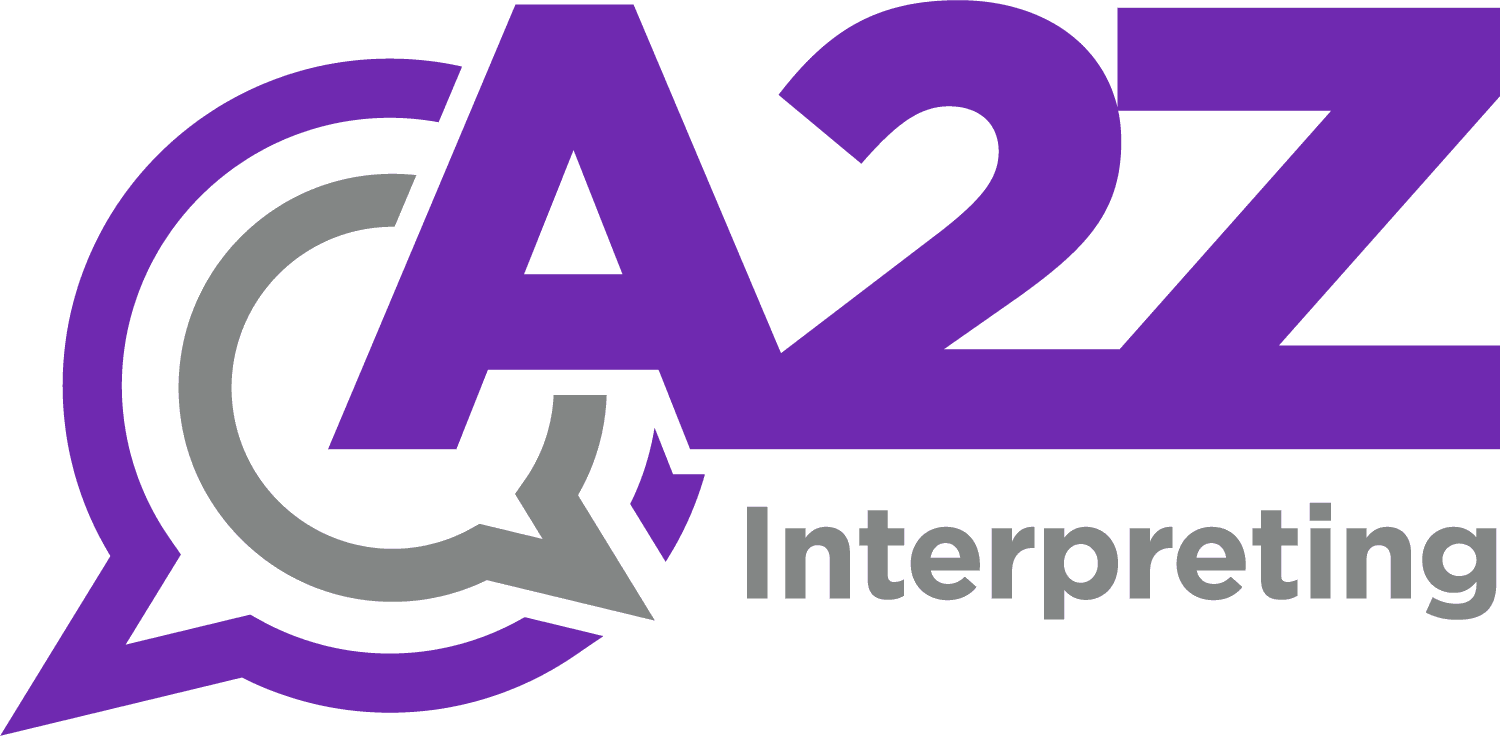As businesses, healthcare providers, and educational institutions, we all share a responsibility to ensure that our spaces are inclusive and accessible to everyone. One of the most powerful ways to provide equal access to communication for Deaf, Hard of Hearing, and DeafBlind individuals is by offering ASL interpreting services.
At A2Z Interpreting, we believe that accessibility is not just a legal requirement—it’s a human right. It’s about ensuring that every individual has equal access to services, whether they’re visiting your medical office, attending a class, or participating in a community event.
In this post, we’ll explore why ASL interpreting is essential, the benefits it offers your organization, and how you can get started with accessible communication solutions.
Why ASL Interpreting Should Be a Priority for Your Organization
1. Legal Compliance: The ADA and Accessibility Requirements
Under the Americans with Disabilities Act (ADA), businesses and organizations are required to provide reasonable accommodations for individuals with disabilities. This includes offering ASL interpreters for Deaf and Hard of Hearing clients, employees, and customers who need them.
Failing to comply with ADA regulations not only puts your organization at risk of legal consequences but also sends the message that accessibility is an afterthought. Providing ASL interpreters ensures that you’re meeting federal requirements and, more importantly, providing equal access to the services you offer.
2. Ethical Responsibility: Creating Inclusive Spaces
Beyond the legal aspect, there’s an ethical responsibility to provide accessible services. Everyone should have the opportunity to engage, learn, and participate without barriers. Whether you’re in healthcare, education, or any other industry, inclusivity should be at the heart of your operations.
By offering ASL interpreters, you’re helping create spaces where Deaf individuals can fully participate in their healthcare, education, and career opportunities. It’s about providing dignity, respect, and equity for all.
3. Enhancing Customer Experience: A Competitive Advantage
In today’s world, customers are looking for businesses and organizations that are committed to inclusivity. Offering ASL interpreting not only enhances your customer experience but can also set you apart from your competitors. Providing clear communication leads to better relationships, greater satisfaction, and stronger loyalty from your Deaf or Hard of Hearing customers.
The benefits are clear:
- Stronger client relationships
- Increased customer satisfaction
- Positive public perception for being inclusive
4. Supporting Your Employees: Inclusive Workplaces
Inclusion isn’t just for your customers—it’s essential for your employees as well. Whether you’re hiring Deaf individuals or supporting existing employees who are Deaf or Hard of Hearing, ASL interpreters can help make the workplace more accessible and welcoming.
By providing interpreters for meetings, training, or even one-on-one sessions, you’re ensuring that everyone has equal opportunities to succeed and contribute. Workplace accessibility also boosts employee morale, reduces turnover, and promotes a culture of inclusion.
How to Get Started with ASL Interpreting Services
Getting started with ASL interpreting services may feel like a big step, but it’s easier than you think! Here are some practical tips to get your organization on the path to inclusive communication:
1. Assess Your Accessibility Needs
Start by evaluating your organization’s current accessibility. Are you offering interpreting services where they’re needed? Do your Deaf or Hard of Hearing clients have access to clear communication in medical appointments, meetings, or community events? Identifying areas where ASL interpreters could make a difference is the first step in making your services more inclusive.
2. Choose the Right Interpreting Service
At A2Z Interpreting, we believe in providing the right interpreter for every situation. Whether you need interpreters for healthcare settings, workplace meetings, education, or public events, we ensure that the interpreter you choose has the skills, experience, and training to meet your specific needs.
3. Set Up a Scheduling Process
Making sure your clients and employees have access to ASL interpreters requires an organized system. Set up an easy-to-use scheduling process where requests for interpreters can be made in advance. This ensures you always have the right interpreter available when needed. At A2Z, we also help organizations by providing curated interpreter scheduling, ensuring that the right professional shows up every time.
4. Communicate Your Commitment to Accessibility
Let your clients, employees, and community know that you are committed to providing equal access. Make it clear on your website, in your office, or at events that ASL interpreters are available upon request. This helps promote a culture of accessibility and shows that you take inclusion seriously.
Get in Touch with A2Z Interpreting
Creating an accessible environment through ASL interpreting isn’t just about compliance—it’s about making sure everyone has the same opportunity to succeed, participate, and engage. At A2Z Interpreting, we’re here to help you make that happen.
If you’re ready to ensure equal access for your Deaf or Hard of Hearing clients, employees, and community, contact us today to learn more about our interpreting services.
